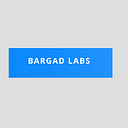ERP FOR REFACTOR MANUFACTURER
World Refractories production in 2022 will be 59 MnMT. The iron and steel industry is the major end-user of refractories, mainly used in internal linings of furnaces, different types of refractories are used depending on temperatures and service conditions of applications such as boilers, Blast furnaces, kilns, ovens, etc..
BSS ERP for Refractories Manufacturing Industry is designed to handle complete needs in the most efficient, effective & accurate way. BSS ERP has continuously evolved since 1999 and BSS ERP is committed to providing an industry-specific, comprehensive, and robust ERP solution for Chemical Industry. BSS ERP technical expertise and mapping of key requirements is the key behind its success BSS Refractories ERP Software is designed to provide complete visibility across all supply chain, Logistics, Inventory, and financials.
The general requirements of a refractory material can be summed up as
- Its ability to withstand high temperatures and trap heat within a limited area like a furnace.
- Its ability to withstand the action of molten metal, hot gasses and slag erosion, etc;
- Its ability to withstand load at service conditions;
- Its ability to resist contamination of the material with which it comes into contact;
- Its ability to maintain sufficient dimensional stability at high temperatures and after/during repeated thermal cycling;
- Its ability to conserve heat. Properties of Refractories Important properties of refractories are chemical composition, bulk density, apparent porosity, apparent specific gravity, and strength at atmospheric temperatures. These properties are often among those which are used as ‘’control points’’ in the manufacturing and quality control.
The demand for the Enterprise resource planning system within the manufacturing industry has increased significantly with the growing need to improve floor efficiency for quicker delivery and to reduce the costs of products and services.
Manufacturers view ERP modules as a means to pursue digital transformation and gain a competitive edge. Manufacturing ERP modules automate tedious manual business processes and provide accurate, real-time information. This helps reduce inefficiencies and redundancies while helping users navigate through complex processes — thereby significantly boosting productivity. Let us take a look at the above ERP modules for the manufacturing industry and greater detail.
Highlight Feature
• Quality Control: Accurate MIS on Production Costing .Plant Performance Sophisticated and Accurate MIS on Production Costing .Plant Performance Traceability of FG batch to the input RM heat quality test certificate PLC & DCS — Smart factory Integration with ERP
• Production Planning: Item BOM, Material Requirement Plan, Monthly Production Schedule, process parameters like temperature, pressure, etc. Standard to actual Recovery calculations to manage variance analysis Breakdown Analysis (Date wise, shift wise, Shift wise, Equipment-wise- Reason)
• Uninterrupted Sales & Dispatch: Enquiry & Quotation followed by three-level order cycle Sales Contract, Sales Order, and Delivery Orders. Delivery orders can be made on the basis of the advance received and with the details of the actual product to be dispatched (with Grade wise, Size wise product details) Sales Invoicing generated instantly, by linking to Weigh slips and Delivery Orders Flexible pricing methods cash discounts, quantity discounts, fixed period sales contracts, credit control, etc.
- Complete Financial Control: Per Ton costing based on Raw Material, ‘Consumables, Cost of fuel, Electricity
- Mould Life accounting
- Manage Division wise & consolidated finance books Costing/ efficiency,
- Ledgers & Profitability. Inter division Sales & Purchase on a real-time basis
- Rejection & Rectification management for damaged material.
- High-End Analytics
ERP For All Manufacturing Process
BSS has deployed ERP for manufacturing business in both repetitive manufacturing and job shop manufacturing operations, such as:
- Make-to-stock manufacturing
- Make-to-order manufacturing
- Mixed-mode manufacturing
- Assembly operations
- Job shop production
- Repetitive manufacturing
- Batch manufacturing
ERP is accounting and operations-oriented and features one database as a master source of enterprise information. ERP for manufacturing is used to identify and plan the resource needs of the entire enterprise. ERP provides one user interface for the entire organisation to manage
Dashboards are flexible by nature. They can take most sources of information and transform that data into insights that can be used to get a better understanding of operational performance. Thus, dashboards can be highly personalised, delivering the right information to the right person at the right time. For example, a Vice President might be interested in KPI’s that affect monthly results, such as cost reductions or risk management. A plant manager focuses on daily metrics such as production, quality, or costs.
Manage all your warehouses, rooms, rows, shelves, bins, and more with just one software . Link warehouses to accounts and leverage a multitude of stock entry types to choose exactly which units fulfill orders. Reconcile stock, do batched operations, and get quick insights and reports on all your items across multiple warehouses
ERP Hosting :
- Cloud Hosted ERP Software: Use our third-party hosting provider who runs the software on their servers for cloud deployment.
- On-Premise ERP Software: Install the software on a server at your facility.
Talk to our consultant to know more bout ERP IMPLEMENTATION PROCESS. We are Reachable through www.bargadss.com or you can directly email us at bd@bargadss.com or call us at +91 8017730566.
